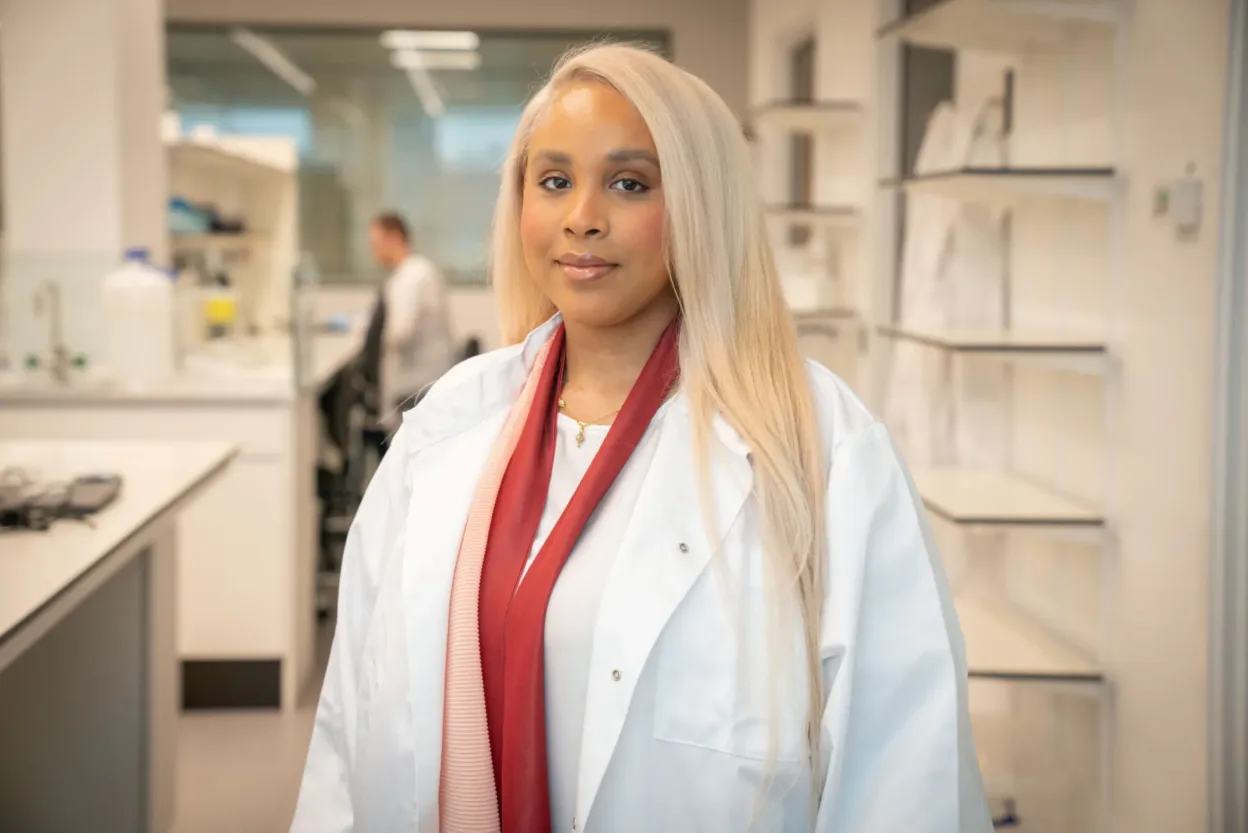Cancer Research UK National Biomarker Centre opens

The Cancer Research UK National Biomarker Centre has opened in Manchester in the new Paterson Building, which was rebuilt following a devastating fire in 2017, and is also home to the Cancer Research UK Manchester Institute.
The state-of-the-art facility has been made possible through fundraising, philanthropic donations, and partnership between Cancer Research UK, the University of Manchester and the Christie NHS Foundation Trust.
This new National Biomarker Centre will help experts detect cancer at an earlier stage – when there are usually more treatment options available. It will also help to provide clues on how aggressive a patient’s tumour is, predict which treatments are likely to work best and monitor responses to personalised treatment.
Cancer Research UK will invest £2.5m into the National Biomarker Centre each year as part of a £26m investment in Manchester – putting the city at the heart of its mission to beat cancer.
The Cancer Research UK National Biomarker Centre is a significant milestone in the mission to develop earlier and highly personalised treatments for cancer. It is fitting that this revolutionary approach will be based in Manchester, one of the world’s leading cities for cancer research.
Professor Graham Lord, Vice-President and Dean of the Faculty of Biology, Medicine and Health at The University of Manchester said: “The Cancer Research UK National Biomarker Centre is a significant milestone in our mission to develop earlier and highly personalised treatments for cancer. It is fitting that this revolutionary approach will be based in Manchester, one of the world’s leading cities for cancer research.”
The news of the centre opening has been welcomed by three individuals from Greater Manchester, each of whom owes their life to the power of cancer research. They were invited to the centre for a special preview before the official opening today.
Asia, who lives in Manchester city centre, has recently been given the all-clear after being diagnosed with stage 4 Hodgkin lymphoma last year.
Last year was gruelling and I’m now delighted to be recovering and getting my life back on track. Being able to see direct the work which will help future patients is fascinating and inspiring,” said Asia.
Carolyn, from Whitefield, had just celebrated her 40th birthday and her youngest child was aged four when she was diagnosed with breast cancer. She had a mastectomy and reconstructive surgery and also underwent chemotherapy at The Christie.
“As a patient treated at The Christie who has gone on to support Cancer Research UK for many years, I am delighted to have a sneak preview of the work at the National Biomarker Centre and find out what the future of research holds,” said Carolyn.
Sharon, from Chadderton in Oldham, also welcomed the news. She was diagnosed with breast cancer at the age of 36 after noticing a lump on her left breast. She underwent surgery followed by 12 weeks of chemotherapy treatment.
“I am always humbled to hear about the amazing research work happening in Manchester,” said Sharon. “Having a look at the National Biomarker Centre before the official opening is so exciting.”
Now 60, she will celebrate a quarter of a century free of cancer next year.
Showcasing biomarker research in Manchester
Another person who knows all too well the impact of cancer is Professor Caroline Dive, Director of the National Biomarker Centre. Her grandfather died from brain cancer before she was born. Her mother has undergone surgery on an endometrial tumour, and her father was treated for colon cancer. He passed away aged 95, following a further diagnosis of cancer.
“The impact biomarkers will have on patients’ care can’t be underestimated,” said Professor Dive.
“Doctors will be able to get more information, faster, to determine the best treatment plan for each individual. And it will stop some patients from undergoing unnecessary interventions or treatments that could cause pain or discomfort without providing benefit.
“We are learning how to manage cancer. And that will mean we can give patients longer with their loved ones and a good quality of life.”
The launch event today brings together key stakeholders, philanthropists, political leaders, key researchers and Cancer Research UK staff, including Michelle Mitchell, our chief executive. The event will showcase the new research facilities and bring attention to growing biomarker research in Manchester and the UK.
“As a former student of The University of Manchester, I’m delighted that such an exciting and revolutionary facility will be housed in the city,” said Michelle Mitchell.
“Research at the Cancer Research UK National Biomarker Centre will help to transform cancer treatment in the future.”
Detecting cancer earlier
Cancer survival is three times higher on average if diagnosed early. That’s why the National Biomarker Centre’s work in early detection is a key priority for Cancer Research UK’s More Research, Less Cancer campaign.
Images:
- Asia at the National Biomarker Centre
- Carolyn at the National Biomarker Centre
- Sharon at the National Biomarker Centre
- Professor Caroline Dive speaking to visitors at the new National Biomarker Centre




